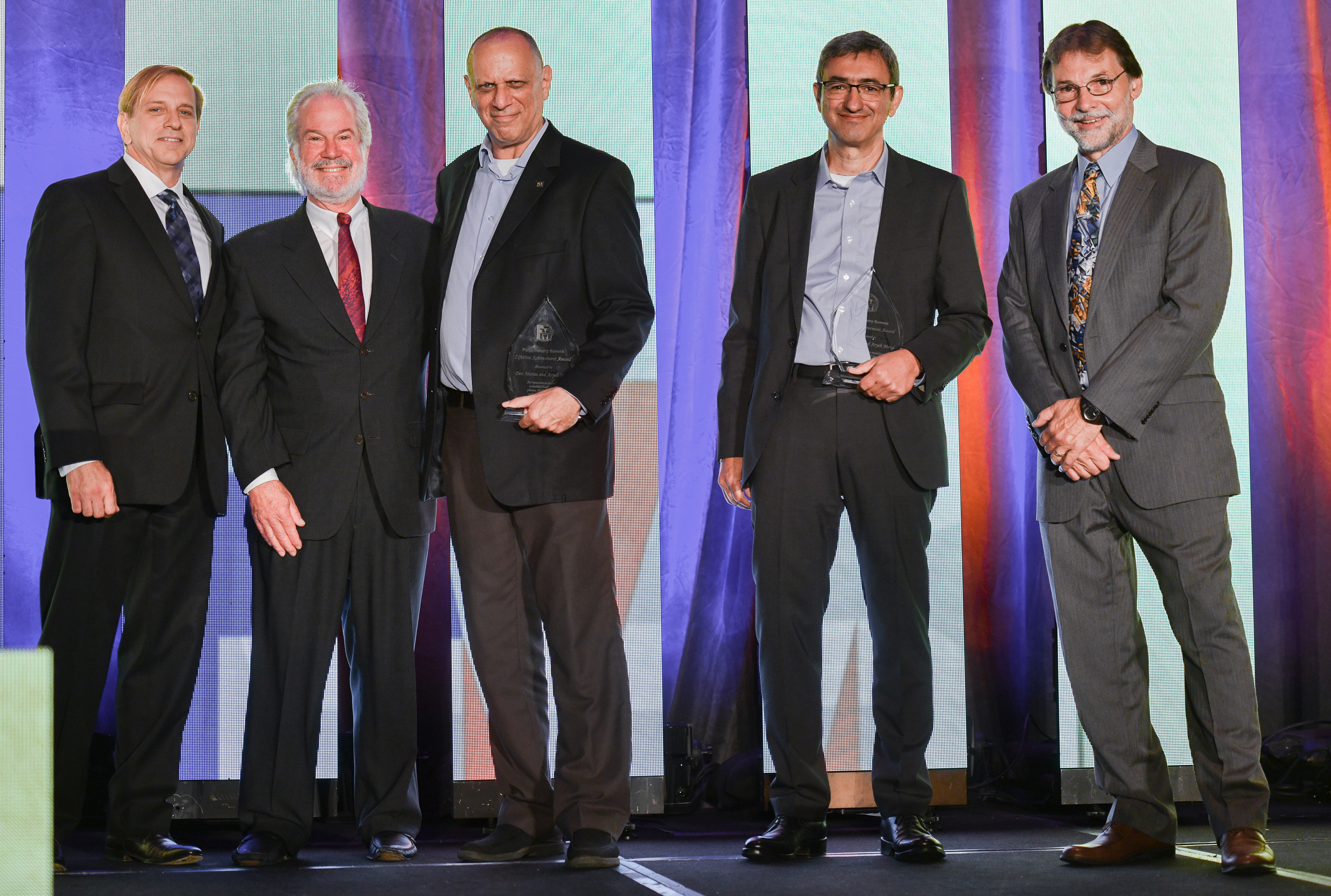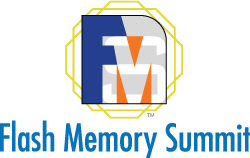FMS 2020 Keynotes & Sessions
Please note: Some Sessions are ONLY available to paid attendees marked (PRO).
Sessions marked (OPEN) are available to all.
Day 1 Intro Tue 8:35am
Introduction
to Day 1 of Virtual FMS
Jay Kramer
Network Storage
Jillian Coffin
TechTarget
FMS
Keynote 1 Tue 10:15am

Today's Trends in Cloud and the Future Enterprise (OPEN)
Matt Eastwood
Senior Vice President
IDC
Keynote 2 Tue 11:35am

MRAM Stars in an AI Coprocessor for NASA Spaceflight Computing (OPEN)
Jack Guedj
CEO
Numem
Keynote 3 Tue 1:15pm

Storage as the Driver of Change: Rethinking Data Infrastructure (OPEN)
Siva Sivaram
President of Technology
and Strategy
Western Digital
Keynote 4 Tue 1:55 pm

Using Hardware Acceleration to Increase NVMe Storage Performance (OPEN)
Thad Omura
VP Marketing Flash Business Unit
Marvell
Marvell Semiconductor
Keynote 5 Tue 4:15pm

Fungible Data Centers: The Evolution of Data Centers in the Data-Centric Era (OPEN)
Pradeep SIndhu
Co-Founder and CEO
Fungible
Keynote 6 Wed 10:15am

Bringing AI/ML to Data Centers Everywhere Via GPUs, DPUs, and Matching Storage (OPEN)
Kevin Deierling
VP Marketing
NVIDIA/Mellanox
Keynote 7 Wed 11:35am

The Future Adaptable Data Center (OPEN)
Gopi Jandhyala
VP of Datacenter Engineering
Xilinx
Keynote 8 Wed 1:15pm

Storage Processors to Unleash the Full Potential of Flash Storage (OPEN)
Steve Fingerhut
Presidents, CBO
Pliops
Keynote 9 Wed 1:45pm

Intel® Optane™ Persistent Memory: From Vision to Reality (OPEN)
Alper Ilkbahar
Vice President of Data Products Group
Intel
Keynote 10 Wed 3:55pm

Persistent Memory Meets the Data Needs of Demanding Applications (OPEN)
Alistair Symon
VP of Storage Development and Software Defined Environments
IBM Storage
Keynote 11 Wed 4:25pm

New Flash Architecture Combines QLC Density with SLC Speed (OPEN)
Andy Hsu
Founder and CEO
NEO Semiconductor
Keynote 12 Thu 10:25am

NVM Express Technology: Powering the Connected Universe
Amber Huffman
Intel Fellow and Chief Technologist
NVM Express
Keynote 13 Thu 11:45am

Accelerating Deep Neural Networks with Analog Nonvolatile Memory Devices (OPEN)
Geoffrey Burr
Distinguished Research Staff Member
IBM Almaden/AI
Keynote 14 Thu 12:15pm

What You Need to Know about DNA Data Storage Today (OPEN)
Karin Strauss
Title to Come
Microsoft
Session A-1 Tue 8:35am
What The Hyperscalers Are Buying (PRO)
Jonathan Hinkle
Executive Director
Lenovo
Session B-1 Tue 8:35am
NVMe-oF: The Best Way to Network Enterprise Storage (OPEN)
John Kim
Director of Storage Marketing
NVIDIA
Session C-1 Tue 8:35am
Advances in Enterprise Flash Storage (OPEN)
Jay Kramer
Business Chairperson and Emcee
Network Storage
Session D-1 Tue 8:35am
Smart New Architecture for Cloud-Scale Storage (OPEN)
Shachar Fienblit
VP R&D/Co-Founder
VAST Data
Session A-2 Tue 10:45am
Hyperscale Storage in 2025 and How We Got There (Panel) (PRO)
Jonathan Hinkle
Executive Director
Lenovo
Session B-2 Tue 10:45am
NVMe/TCP Use Cases (Panel) (OPEN)
Howard Marks
Technologist Extraordinary
VAST Data
Session C-2 Tue 10:15am
Top Ten Things You Need to Know about Enterprise Storage Today (Panel) (OPEN)
Jean S. Bozman
President
Cloud Architects
Session D-2 Tue 10:45am
Using Cloud-Defined Storage (Panel) OPEN
J Metz
Board Member
SNIA
Pres.1 Tue 11:25am
Lifetime Achievement Award (OPEN)
Chuck Sobey
Founder
Channel Science
Pres.2 Tue 1:05pm
TechTarget (OPEN)
Jillian Coffin
Group Publisher Storage, Virtualization & Cloud Media Groups
TechTarget
Pres.3 Tue 1:45pm
SNIA (OPEN)
Willie Nelson
CMSI Marketing Chair
SNIA
Session A-3 Tue 2:35pm
Using 3D XPoint to Overcome Storage Roadblocks (PRO)
Milind Weling
Sr. VP Programs and Operations
Intermolecular
Session B-3 Tue 2:35pm
Getting the Most Out of NVMe (OPEN) (Sponsored by NVM Express)
Cameron Brett
Director of Enterprise SSD Marketing
KIOXIA
Session C-3 Tue 2:35pm
How Data Centers Can Profit from New Memory Technologies (OPEN)
Dave Eggleston
Owner and Principal
Intuitive Cognition
Session D-3 Tue 2:35pm
Bringing Enterprise-Class Management to Big Memory (OPEN)
Frank Berry
VP Marketing
MemVerge
Session A-4 Tue 4:45pm
3D XPoint in 2025, and How We Got There (Panel) (PRO)
Mark Webb
Principal/Consultant
MKW Ventures
Session B-4 Tue 4:45pm
NVMe in Cloud Applications (Panel) (OPEN)
Mark Carlson
Principal Engineer Industry Standards
KIOXIA
Session C-4 Tue 4:45pm
What Will Replace Flash and When? (Panel) (OPEN)
Jim Handy
President
Objective Analysis
Session D-4 Tue 4:45pm
Top Ten Things You Need to Know about Big Memory Management Today (Panel) (OPEN)
Chuck Sobey
Founder
Channel Science
Day 2 Intro Wed 8:30am
Introduction
to Day 2 of Virtual FMS
Jay Kramer
Network Storage
Jillian Coffin
TechTarget
FMS
Session A-5 Wed 8:35am
Accelerating Applications for a Competitive Edge (PRO) (Sponsored by Micron)
Brian Berg
President
Berg Software Design
Session B-5 Wed 8:35am
Persistent Memory (PM) Offers Storage at Memory Speeds (OPEN) (Sponsored by JEDEC, SNIA, and OpenFabrics Alliance)
Jim Pappas
Director of Technology Initiatives
Intel Corporation
Session C-5 Wed 8:35am
IDC Enterprise/Cloud Storage - Part 1 (OPEN)
Eric Burgener
Research VP, Infrastructure Systems and Platforms
IDC
Session D-5 Wed 8:35xx
Storage Processors Accelerate Database Operations (OPEN)
Tony Afshary
Sr. Director of Product Marketing
Pliops
Session A-6 Wed 10:45am
Which Type of SSD Is Best for Your Application? (Panel) (PRO)
Brian Berg
President
Berg Software Design
Session B-6 Wed 10:45am
How Can We Solve the Problems Holding Up Persistent Memory Adoption? (Panel) (OPEN) (Sponsored by JEDEC, SNIA, and OpenFabrics Alliance)
Dave Eggleston
Owner and Principal
Intuitive Cognition
Session C-6 Wed 10:45am
IDC Cloud Storage - Part 2 (OPEN)
Eric Burgener
Research VP, Infrastructure Systems and Platforms
IDC
Session D-6 Wed 10:45am
Optimizing NVMe-oF Storage with EBOFs & Open Source Software (OPEN) (Sponsored by Micron)
Sujit Somandepalli
Principal Storage Solutions Engineer
MIcron
Pres.4 Wed 11:25am
SuperWomen in Flash Leadership Award (OPEN)
Camberley Bates
Managing Director/Analyst
Evaluator Group
Pres.5 Wed 1:05pm
Virtual FMS Best of Show Awards (OPEN)
Business Chairperson and Emcee
Network Storage
Session A-7 Wed 2:15pm
New High-Speed Interfaces for Persistent Memory and Coprocessors (PRO)
Glenn Ward
Chief of Staff, Cloud Server Infrastructure
Microsoft
Session B-7 Wed 2:15pm
Ethernet-Attached SSDs Lead to Higher-Performing Storage (OPEN)
Rob Davis
VP of Storage
NVIDIA
Session C-7 Wed 2:15pm
IDC Enterprise Solid State Storage – Strategies and Futures (OPEN)
Eric Burgener
Research VP, Infrastructure Systems and Platforms
IDC
Session D-7 Wed 2:15pm
New Ways to Improve SSD Management and Performance (OPEN)
Jonmichael Hands
Senior Strategic Planner and NVM Express Marketing Work Group Chair
Intel Corporation
Session A-8 Wed 4:55pm
Where the New High-Speed Interfaces Fit and How They Work Together (Panel) (PRO)
Kurtis Bowman
President
Gen-Z Consortium
Session B-8 Wed 4:55pm
Top Five Ways Ethernet SSDs Can Improve Storage Solutions (Panel) (OPEN)
Rob Davis
Vice-President
NVIDIA
Session C-8 Wed 4:55pm
IDC Real World Applications and Solutions for Persistent Memory (Panel) (OPEN)
Eric Burgener
Research VP, IDC
TechTarget
Session D-8 Wed 4:55pm
Using the New EDSFF (E3) SSDs Effectively (Panel) (OPEN)
Cameron Brett
Director of Enterprise SSD Marketing
KIOXIA
Day 3 Intro Thu 8:30am
Introduction
to Day 3 of Virtual FMS
Jay Kramer
Network Storage
Jillian Coffin
TechTarget
FMS
Session A-9 Thu 8:35am
Computational Storage Increases System Throughput and Scalability (PRO) (Sponsored by SNIA)
J B Baker
Senior Director of Product Management
ScaleFlux
Session B-9 Thu 8:35am
Latest Trends in Storage for AI/ML (OPEN)
Sanhita Sarkar
Global Director, Analytics
Western Digital Corporation
Session C-9 Thu 8:35am
Flash Technology Advances Lead to New Storage Capabilities (OPEN)
Jung Yoon
Sr. Technical Staff Member
IBM
Session D-9 Thu 8:35am
Hands-on Testing of Persistent Memory’s Effects on Analytics Performance (OPEN)
Dennis Martin
Sr. Analyst
Principled Technologies
Pres.6 Thu 10:15am
IT Brand Pulse Awards (OPEN)
Frank Berry
VP Marketing
MemVerge
Session A-10 Thu 10:55am
Keys to Making Computational Storage Work in Your Applications (Panel) (PRO)
Jason Molgaard
Principal Storage Solutions Architect
Arm
Session B-10 Thu 10:55am
Storage for AI in 2025 and How We Got There (Panel) (OPEN)
J Metz
Board Member
SNIA
Session C-10 Thu 10:55am
Next Great Breakthrough in Flash Memory (Panel) (OPEN)
Leah Schoeb
Sr. Developer Relations Manager
AMD
Session D-10 Thu 10:55am
SmartNICs: The Key to High-Speed Converged Networks (Panel) (OPEN)
Rob Davis
Title DTB
NVIDIA
Pres.7 Thu 11:35am
UC Santa Cruz School of Engineering
Speaker TBD
Title TBD
UC Santa Cruz
Session A-11 Thu 1:45pm
Flash Controllers for Application Acceleration (PRO)
Erich Haratsch
Director of Engineering
Seagate
Session B-11 Thu 1:45pm
Storage for Model Training and Execution (OPEN)
Nisha Talagala
CEO and Founder
Pyxeda AI
Session C-11 Thu 1:45pm
SuperWomen in Flash (OPEN)
Camberley Bates
Managing Director/Analyst
Evaluator Group
Session D-11 Thu 1:45pm
Scaling of New Memory Technologies Used for Persistent Memory (OPEN
Mahendra Pakala
Managing Director Memory Group
Applied Materials
Session A-12 Thu 3:30pm
Multiprotocol NVMe Systems Offer Flexibility and Performance (Sponsored by Pavilion Data)
Keith Parker
Director of Product Marketing
Pavilion Data
Session B-12 Thu 3:30pm
Best Ways to Achieve AI Model Scalability (Panel) (OPEN)
Howard Marks
Technologist Extraordinary
VAST Data
Session C-12 Thu 3:30pm
Getting Serious about Containers and Flash Memory (Panel) (OPEN)
Jean S. Bozman
President
Cloud Architects
Session D-12 Thu 3:30pm
Will QLC SSDs Replace Hard Drives (Panel) (OPEN)
Randy Kerns
Senior Strategist
Evaluator Group
FMS 2020 Sponsors & Exhibitors
TechTarget-FMS 2020 Keynotes & Sessions
SearchStorage.com FMS 2020 Archives

















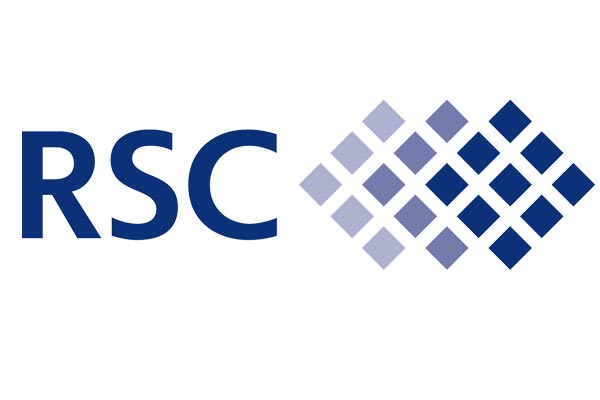






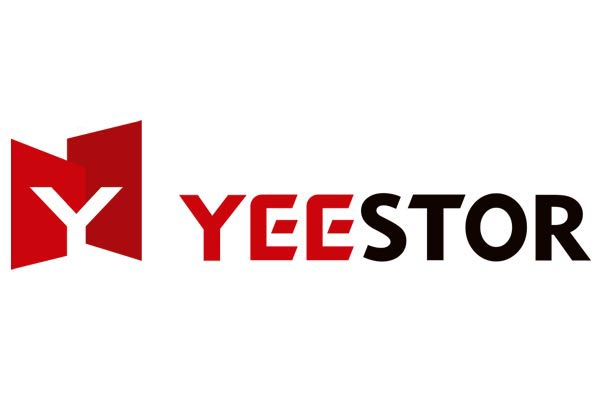















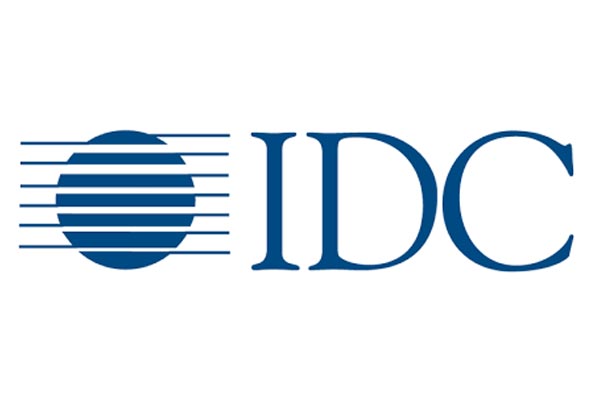


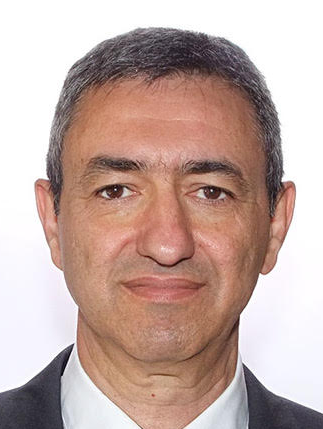
 Prior to founding the company, Dov and Aryeh had worked together and built SSDs based on EEPROMs and battery-backed SRAM. When the first flash device was introduced by Intel, they saw the potential of the technology while realizing its limitations. They understood that providing working products based on flash could bring significant value, and that is what drove them to establish M-Systems. Based on custom hardware and software, They created early flash products, including SCSI SSDs in various form factors.
Prior to founding the company, Dov and Aryeh had worked together and built SSDs based on EEPROMs and battery-backed SRAM. When the first flash device was introduced by Intel, they saw the potential of the technology while realizing its limitations. They understood that providing working products based on flash could bring significant value, and that is what drove them to establish M-Systems. Based on custom hardware and software, They created early flash products, including SCSI SSDs in various form factors.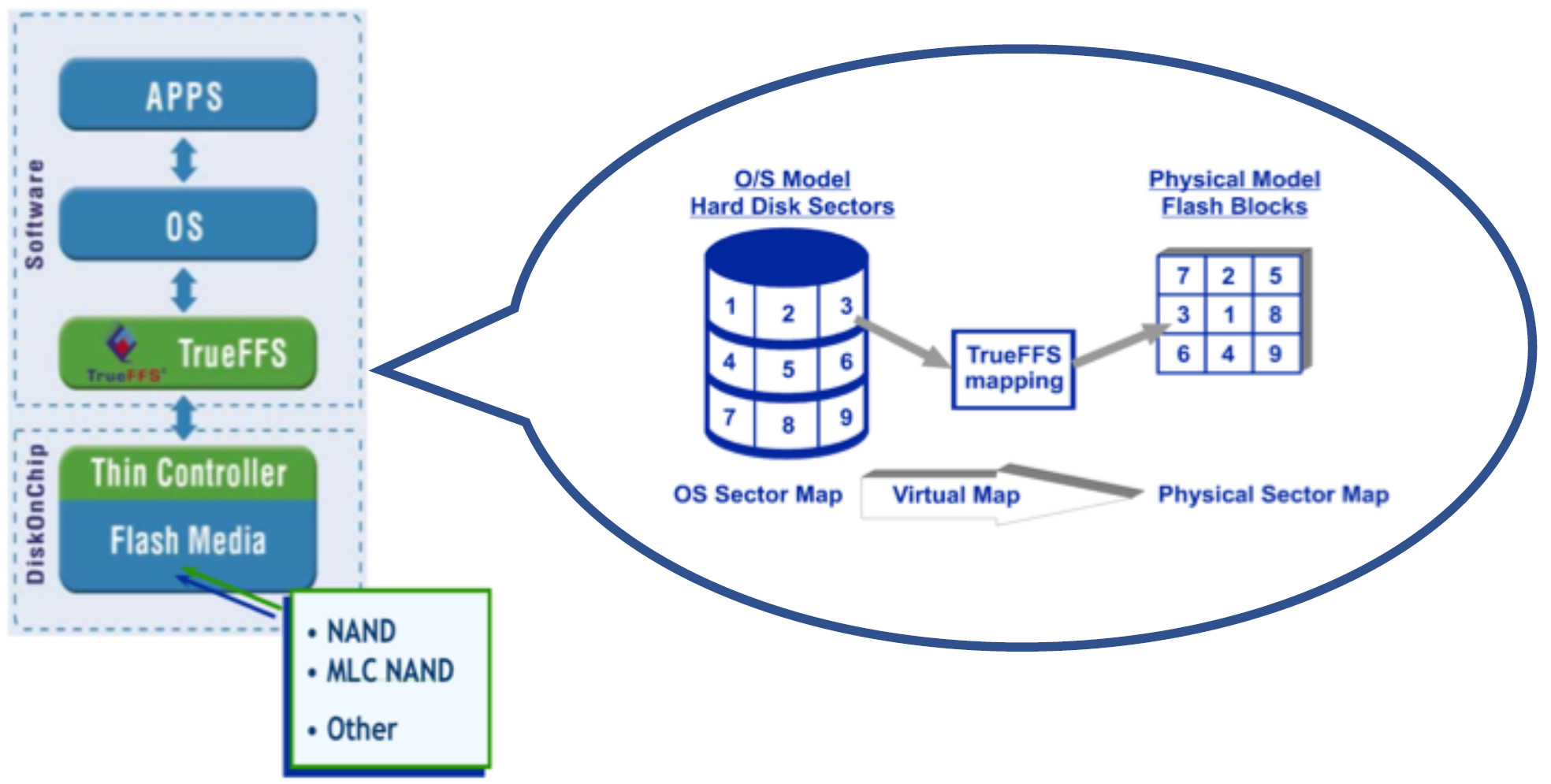 In 1991, the company was approached with a problem involving Fujitsu Pen computers that used proprietary memory cards with battery-backed SRAM, and which suffered data loss due to battery issues. They developed a flash-based solution that included new software to efficiently manage the flash for data storage, and developed what became the TrueFFS Flash File System. TrueFFS implemented full disk emulation while delivering high performance, and included wear leveling, garbage collection, bad media management, and more, while delivering consistent performance.
In 1991, the company was approached with a problem involving Fujitsu Pen computers that used proprietary memory cards with battery-backed SRAM, and which suffered data loss due to battery issues. They developed a flash-based solution that included new software to efficiently manage the flash for data storage, and developed what became the TrueFFS Flash File System. TrueFFS implemented full disk emulation while delivering high performance, and included wear leveling, garbage collection, bad media management, and more, while delivering consistent performance.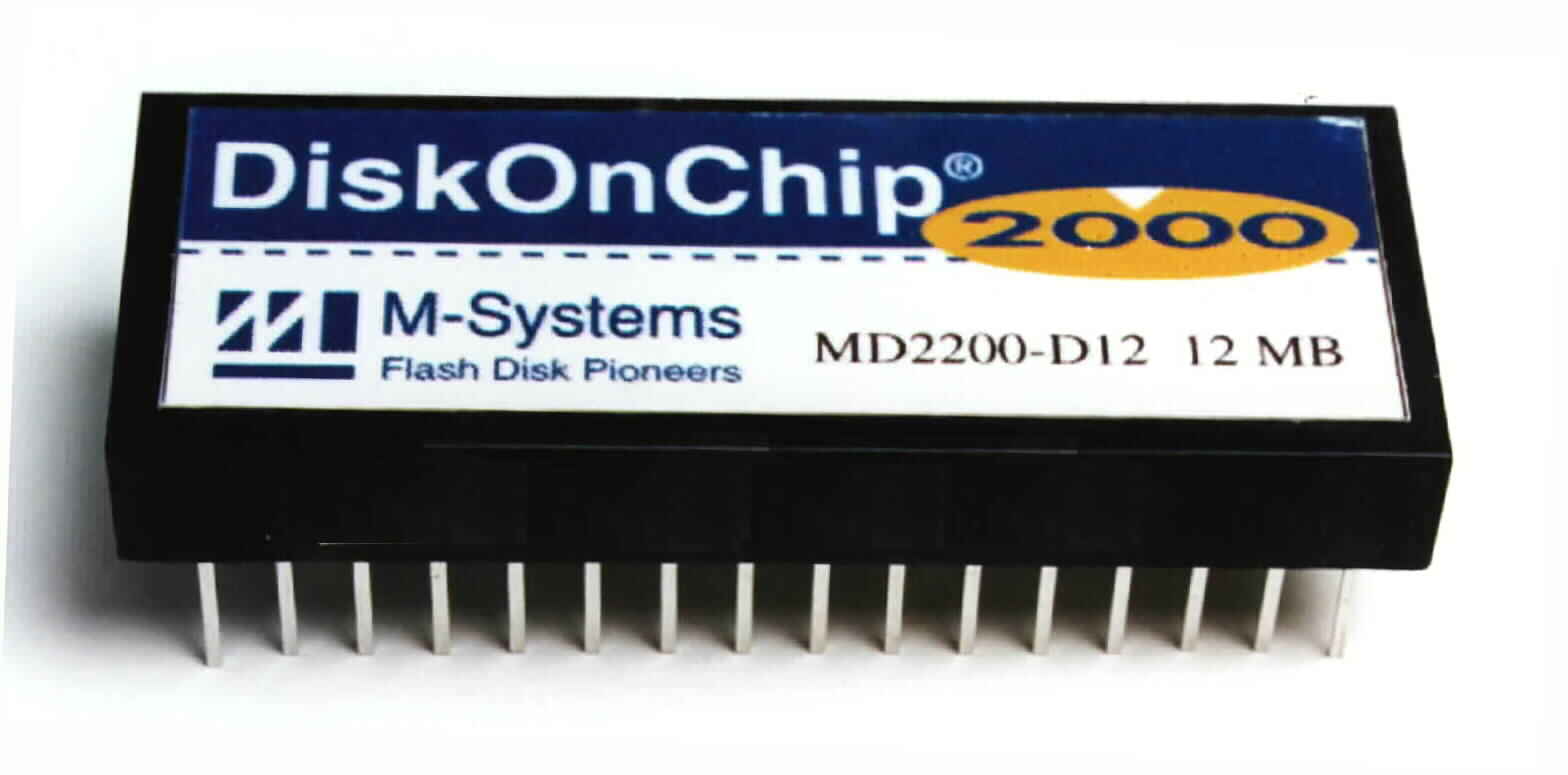 In 1994, NAND Flash started showing production viability, and M-Systems decided to switch to NAND for its entire product line. Most of the companies in the flash market did not switch for another five years or more, but the early switch by M-Systems demonstrated its recognition of NAND's superiority over NOR for data storage in flash. A new version of TrueFFS was designed that added NAND support, and the NAND-based DiskOnChip2000 was introduced in 1995.
In 1994, NAND Flash started showing production viability, and M-Systems decided to switch to NAND for its entire product line. Most of the companies in the flash market did not switch for another five years or more, but the early switch by M-Systems demonstrated its recognition of NAND's superiority over NOR for data storage in flash. A new version of TrueFFS was designed that added NAND support, and the NAND-based DiskOnChip2000 was introduced in 1995.
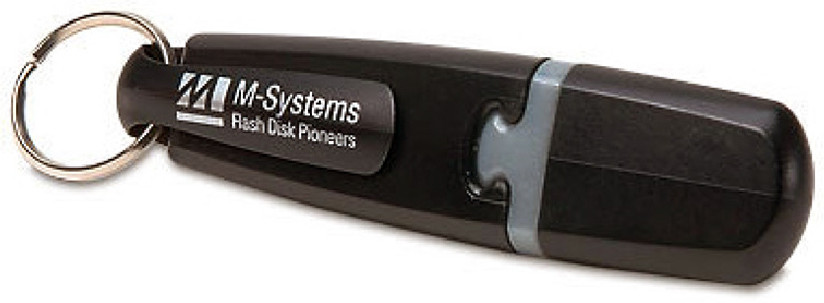
 In 1998, Dov Moran came up with the idea of the USB Flash Drive (UFD), and a
In 1998, Dov Moran came up with the idea of the USB Flash Drive (UFD), and a 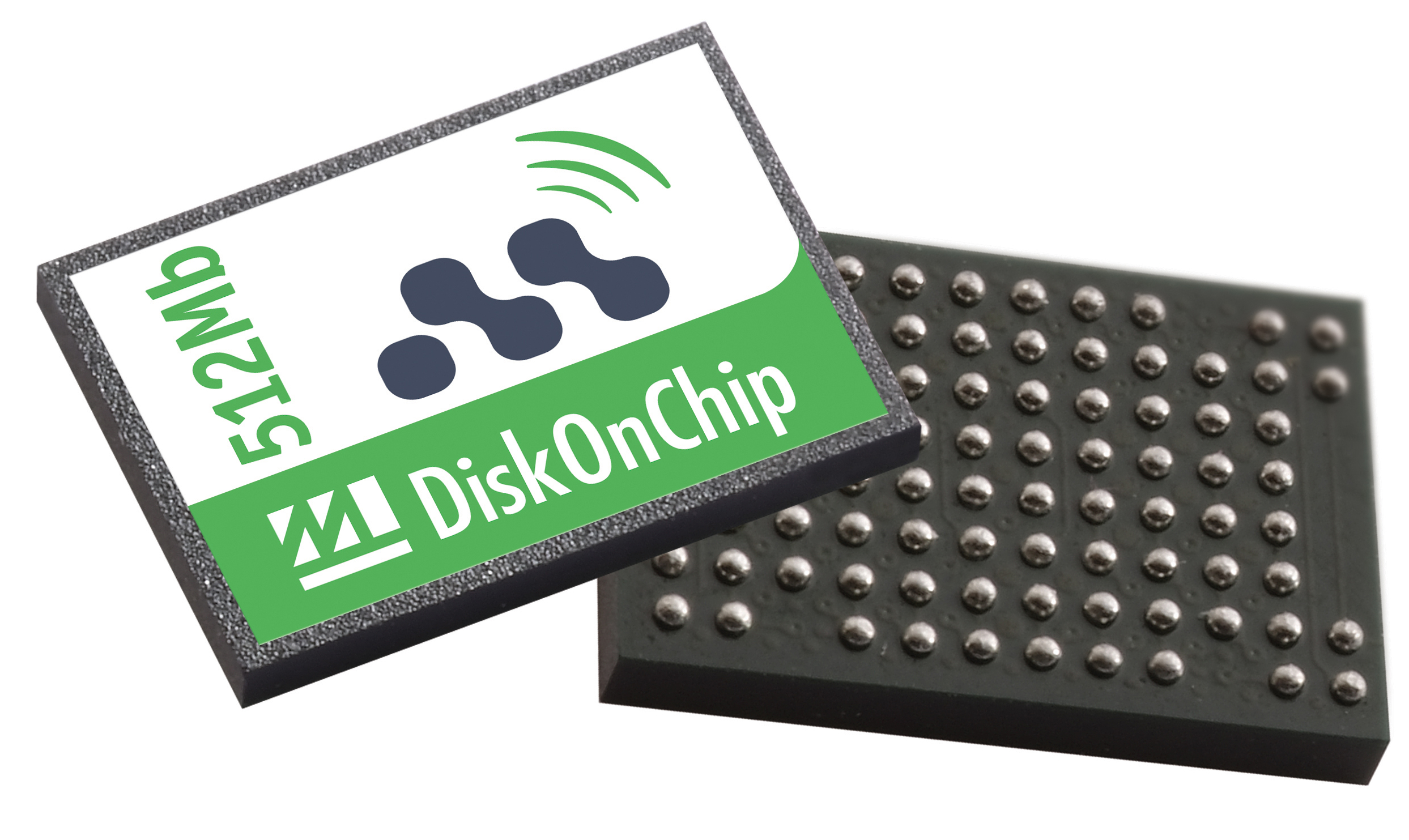 In 2000, Dov and Aryeh identified cell phones as the next killer app for flash-based data storage. Annual sales were already over 400 million units, but these devices used only NOR flash, and this was only for code storage. Data was stored in battery-backed SRAM, and hence was limited to a small contact list, a few text messages, and pictures at low resolution. In response, M-Systems launched their Mobile DiskOnChip design project with their partner Nokia (then the world's largest cell phone manufacturer).
In 2000, Dov and Aryeh identified cell phones as the next killer app for flash-based data storage. Annual sales were already over 400 million units, but these devices used only NOR flash, and this was only for code storage. Data was stored in battery-backed SRAM, and hence was limited to a small contact list, a few text messages, and pictures at low resolution. In response, M-Systems launched their Mobile DiskOnChip design project with their partner Nokia (then the world's largest cell phone manufacturer).
